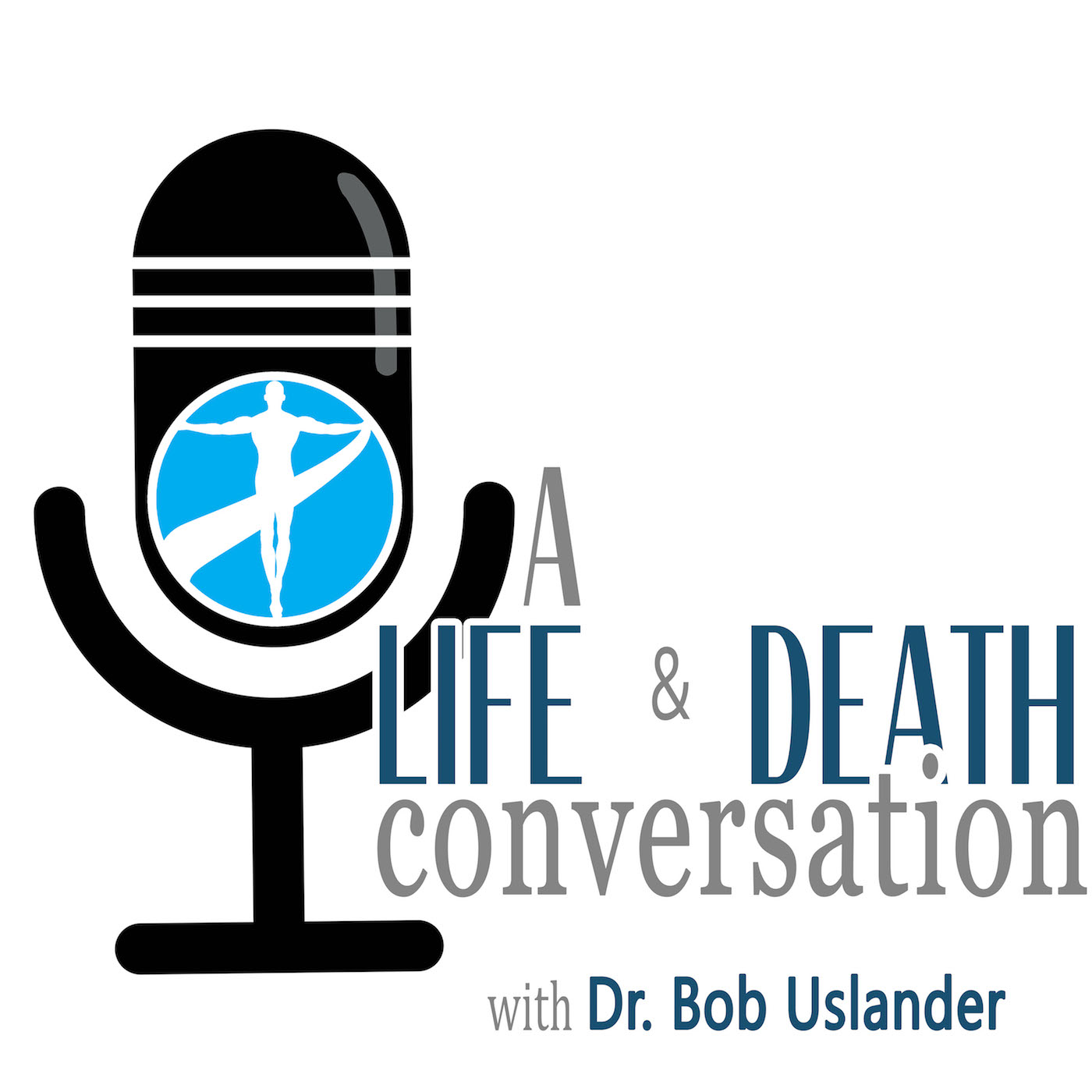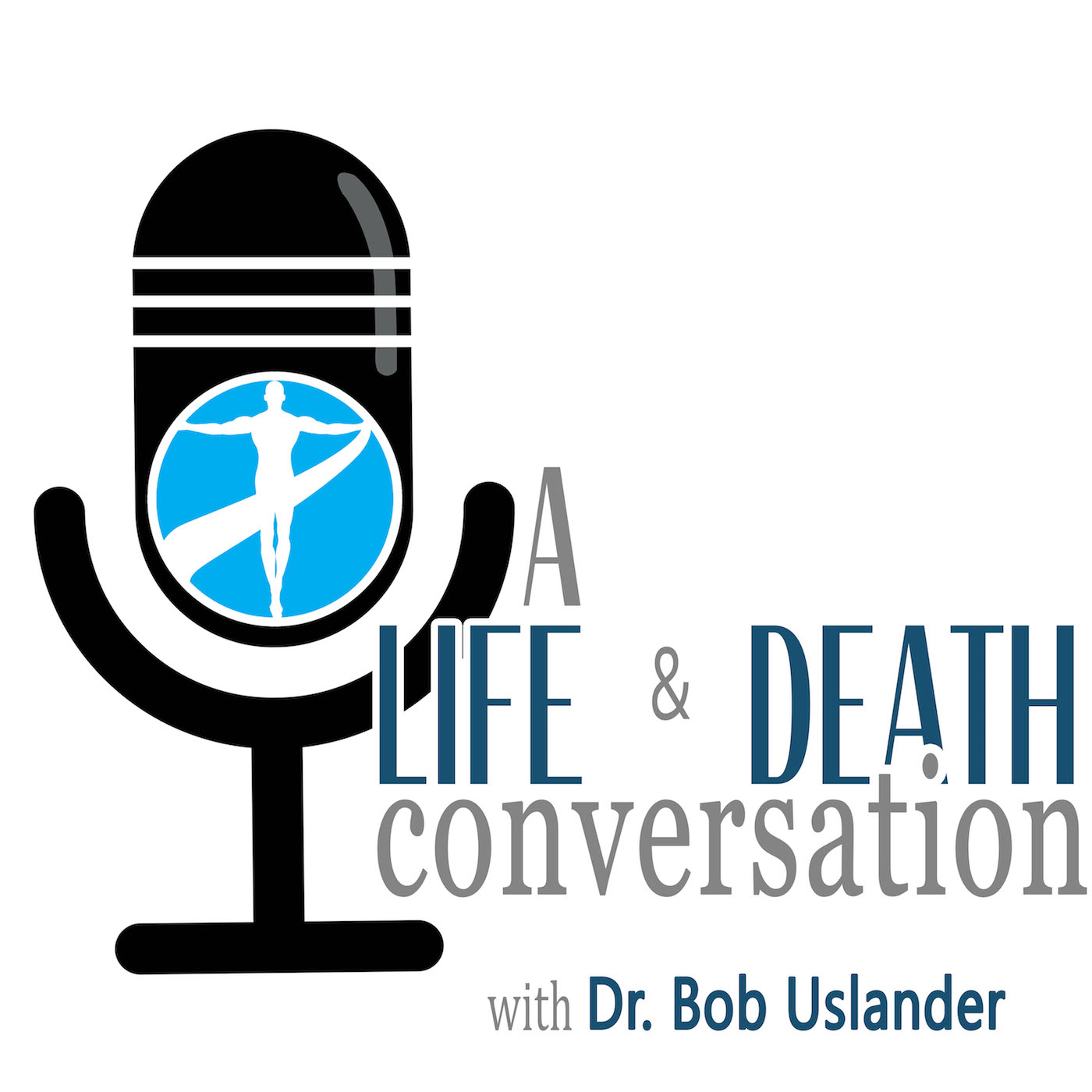Healing After A Loss, Ken Druck Ep. 3
Description
Dr. Bob: I'm here with a good friend of mine who I'm excited to have this conversation with. Ken Druck and I have had many conversations over the years, most of which end up being fairly deep and a lot of insights come out of them. I think we're just both in this space of really contemplating life as well as death just because of who we are and our experiences. I'm excited to have Ken share some of his insights. He'll do that in just a moment, but I'd like to introduce him to you. Ken's work in personal transformation, parenting, psychology, and the literacy of grief has really helped people become, I think, their best selves for almost 40 years now. When you look at Ken, you can't believe he's been doing this work for that long. He's the recipient of numerous awards including a Distinguished Contribution to Psychology, Visionary Leadership Award.
He has really a lifetime of service to the community. He's recognized really as a lifeline to people all over the world, to individuals, families, and communities through his work, which includes the founding of the Jenna Druck Center to honor the life and spirit of his daughter, Jenna; and we'll talk a bit about Jenna and the foundation that he created. Ken really has kind of set a new standard of care and healing out of tragedies like 9/11, Columbine, Katrina, and Sandy Hook, and I look forward to having him talk a little bit about how those experiences have shaped his life and his perspective. Ken has recently come out with a new book called Courageous Aging: Your Best Years Ever Reimagined. In this book, Dr. Ken explores the fears, some of the myths and biases in our culture about aging, so it's a perfect setup here for this conversation. In the book, he also kind of debunks a lot of the myths and offers a path to help people immerse themselves in the wisdom that we've cultivated over the course of our lives. With that introduction, I would like to introduce and ask Ken to say hello.
Dr. Ken Druck: Greetings, Bob. So good to be with you and in a conversation, in a life and death conversation. My goodness. What a wonderful forum you've created to be able to talk openly and safely about all these important issues that so directly improve the quality of our lives and the quality of our deaths.
Dr. Bob: Yeah. Well, I appreciate that. The inspiration for this really comes from life, from just being in this space. You're the same way. You're having conversations with people, both personal and in your professional life. I think, like me, there are many times when you think, wow, if somebody else had been able to listen in on this conversation, how much value would they have received, how much insight into their own issues and their own struggles and their own sort of triumphs. The conversations I have with my patients, with their families, with people like you, I think are so valuable, and I don't want to keep it to ourselves, right? I feel compelled and pulled to really allow people in on these conversations, so thank you for being willing to join in.
Dr. Ken Druck: Thank you for having me.
Dr. Bob: Yeah, absolutely. In your introduction, I abbreviated it. There's so much more, and I think we're going to have a conversation that will last about 30 minutes. I know that the wealth of information that you have and the experiences and insights could go on for 30 hours or potentially 30 days. It's going to be a challenge, but we're going to try to keep this concise enough, and then probably have follow- up conversations as time goes on. I posed some questions to you in advance of our conversation, and I want to jump right in. I don't mince words, and I don't pull back. I just want to get this out there because I want this to be part of our conversation, and I want it to inform and infuse our conversation. What are your thoughts about death? Are you afraid of dying? Do you have fear about dying? When you think about death, what comes up for you?
Dr. Ken Druck: Well, it's a great question that does go right to the core. For me, the fear or the feelings about death are a moving target. It's not as though you run a marathon and you cross the 26-mile line and it's done. I think things that happen over the seasons and the course of our lives ask us or challenge us or force us to confront how we feel about death, and I'm no different. The death of my daughter 21 years ago was an opportunity as well as a tragedy— the opportunity to face down my biggest fears of death. My daughter had died. I had to come face-to-face with that reality, starting with holding her body in my hands, in my arms, facing the idea that her life as we knew it had ended. I thought going all the way back to last year where my 92-year-old mother passed, and I had a chance to help her die.
I think the things that happen that we react to or the losses we suffer effect and change and create opportunities for us to face down our biggest fears of death, to comes to terms with our life as it really is, life on its terms as it is, and to settle some of those fears. Now, are they going to be settled forever? Are we going to find peace or make peace and have peace forever and it's a done deal? No. Those concerns, those feelings, the sorrow, the love, the complex of emotions that come with dealing with death are going to bubble up and resurface. We want to make sure not just to wait for death to arrive or somebody we love to pass. We want to be proactive and take steps to get ahead of the pain curve, to get ahead of the fear curve.
Dr. Bob: That's awesome. How do you do that? I know it might be hard just to distill it down into a sentence or two, but how do you get ahead of that? If there's somebody who maybe has fear because of an experience because maybe somebody in your family had a tragic death or a difficult death and, like many people, you live with this underlying anxiety or fear about this mystery and when is it going to happen and how painful is it going to be. How do you think people can get ahead of that?
Dr. Ken Druck: Well, I boiled it down to what I call the five ideals of courageous living and how we face down the fear of death. I've got basically five things that I recommend. Number one, stay humble, find peace in your unknowingness because there’re sometimes in life where we just don't know, and we have to hold that unknowingness in gentle hands rather than trying to force and will it into knowingness. We're basically part of something so big that at times it's unfathomable. The true nature of the universe—where life comes from, where it goes when we die—is an unfolding mystery. All we have to do is look up at the stars to understand that. The second thing is to cultivate a calm mind that allows naturally arising fears and doubts to come and go and learn to breathe and release even those primordial fears. It's kind of a form of surrender, and we can learn how to make peace with life as it really is by summoning courage, by facing in.
Third is to take the elephant out of the room by opening the lines of conversation, just as you and I are doing today by talking about death and discussing our thoughts and feelings with people we trust. Fourth, keeping the faith of whatever we believe in our heart to be true or what we wish to be true. It's okay to abide by a hoped-for narrative without knowing that it's 100% accurate or not. We don't have to know with complete certainty that oh, here's what it is, here's the program for death, I read it somewhere or somebody told me this is what it is, or this is my sense of it. It's okay to keep the faith, to have it be a gesture of faith, to believe whatever we believe in our heart is true.
Lastly, it's also just fine to have faith in a divine truth without apology or justification. We can do that while respecting and honoring the rights of other people who have different views or different religion or different spiritual path that they're on and a different view of things. Those are the things that I believe we can do to cultivate a courageous attitude towards living and to face down the fear of death.
Dr. Bob: That's beautiful, so really this is universal. I mean, it's regarding any fear or anything that might be challenging us or limiting us in our life, not specifically around a fear of death, but that seems to be a big one for a lot of people, right?
Dr. Ken Druck: Yeah. You know, Bob. We've got these brilliant emotional systems. They're as sophisticated if not more so in some ways than all the other systems that sustain life. We have this emotional system, which gives us internal signals, radar signals, from inside of ourselves, right inside of our hearts, showing up as our emotions. When these feelings turn up, it's our job to learn how to manage them, to decipher them, to decode them, to understand them, and to utilize them as part of our radar, as part of our self management, and to use them to o







